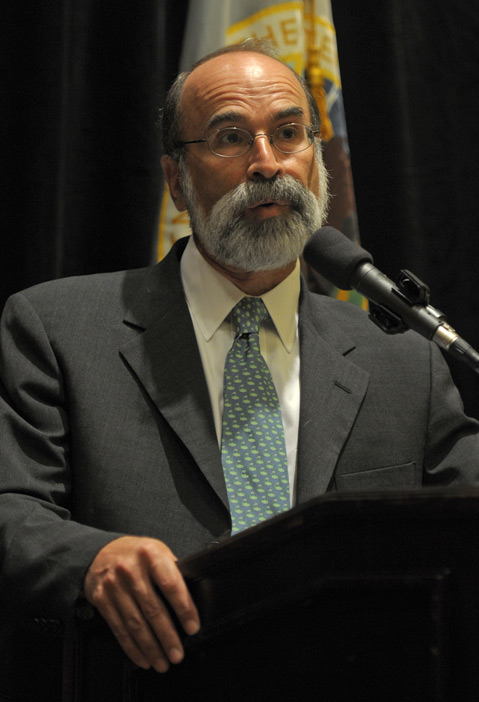Preventing the Next Deepwater Disaster
Federal Query into Offshore Drilling Safety Comes to Santa Barbara
While the fallout from April’s Deepwater Horizon disaster is undoubtedly still falling for the folks and fauna of the Gulf Coast region, the wheels of federal bureaucracy have been turning in earnest to help make sure that such an offshore oil spill never happens again. The latest step in that process came to Santa Barbara this week as an impressive group of elected officials, oil industry insiders, academic experts, and environmental advocates came together at Fess Parker’s DoubleTree Resort on Tuesday to provide input for the United States government’s still-forming plans for offshore oil-rig safety reform.
In the wake of the blowout off the coast of Louisiana — which killed 11 rig workers, injured 17 others, and spewed millions of gallons of oil into the Gulf of Mexico for nearly three months — details emerged of less-than-ideal oversight practices and protocols carried out by the oil industry’s primary federal government regulatory agency, the Minerals Management Service. As a result, the group was essentially — and disgracefully — disbanded and had its authority swiftly reimagined as the Bureau of Ocean Energy, Management and Regulation (BOEM). Shortly thereafter, Secretary of the Interior Ken Salazar suspended all offshore oil drilling in the Gulf and other outer continental shelf sites until late November to allow for a vetting of safety issues with experts and to properly develop and then implement a new — and presumably safer — way of harvesting crude from deep beneath the ocean. Moreover, the newly emboldened BOEM was charged with guiding the aforementioned process.

To that end, the BOEM, led by Director Michael Bromwich, was in town this week as part of an eight-stop tour soliciting input from experts, elected officials, and the public at large on oil-rig safety, spill-containment techniques, and spill-response capabilities of operators. With 20 of the 24 offshore rigs in the state lurking off our coastline, not to mention our celebrated history with oil spills, Santa Barbara was one of only two stops on the tour outside the Gulf region. (The other is in Anchorage, Alaska, later this week.)
Made up of three separate panel discussions, the event included an occasionally frank discussion about current safety training practices for oil-rig employees — after all, as many of the forums panelist pointed out, the vast majority of oil rig-born spills are caused by human error — and what needs to be done to improve them. “We want everybody to go home safe at the end of the day,” testified panelist Dan Gremaud, a safety and training specialist for Nabors Well Services. “But a proactive approach to safety is very difficult to maintain, especially in this industry.”
Specifically, as Gremaud saw it, the major barrier facing increased safety on rigs is a lack of support from management staff for employees to “do the right thing,” internal and external time-pressures to harvest more oil or else, and the occasional rogue employee who either doesn’t care about safety as much as they should or doesn’t appreciate the risk at hand. Fellow “safety” panelist Earl Piermattei, a senior engineer who has been designing oil platforms for the better part of three decades, added that another major stumbling block to safer operations is a lack of safety considerations during the design process. “[Designers] have knowledge and an awful lot of information, but safety just isn’t at the top of the priority list,” explained Piermattei. Other areas of discussion included the historical lack of regular federal inspections of rigs and drilling activity (something that Bromwich says the BOEM has the mandate and money to change), the potentially unfortunate but unavoidable practice of former oil company employees becoming regulatory agency inspectors, and the opinion held by many involved that, all things considered, the offshore oil industry is a generally safe and accident-free business.
A final theme of the day, championed by the Environmental Defense Center’s Chief Counsel Linda Krop, as well as Rep. Lois Capps and assorted other local elected officials, all of whom served as panelists, was the idea that — while striving for improved safety is never a bad thing — the overarching focus should be on prevention (i.e., stopping any new oil leases) and pursuing energy alternatives that do not require drilling. “Regulations simply cannot keep pace with the new dangers and new risks associated with the industry,” opined Krop, before adding emphatically, “The human factor [in all this] is unavoidable.”



